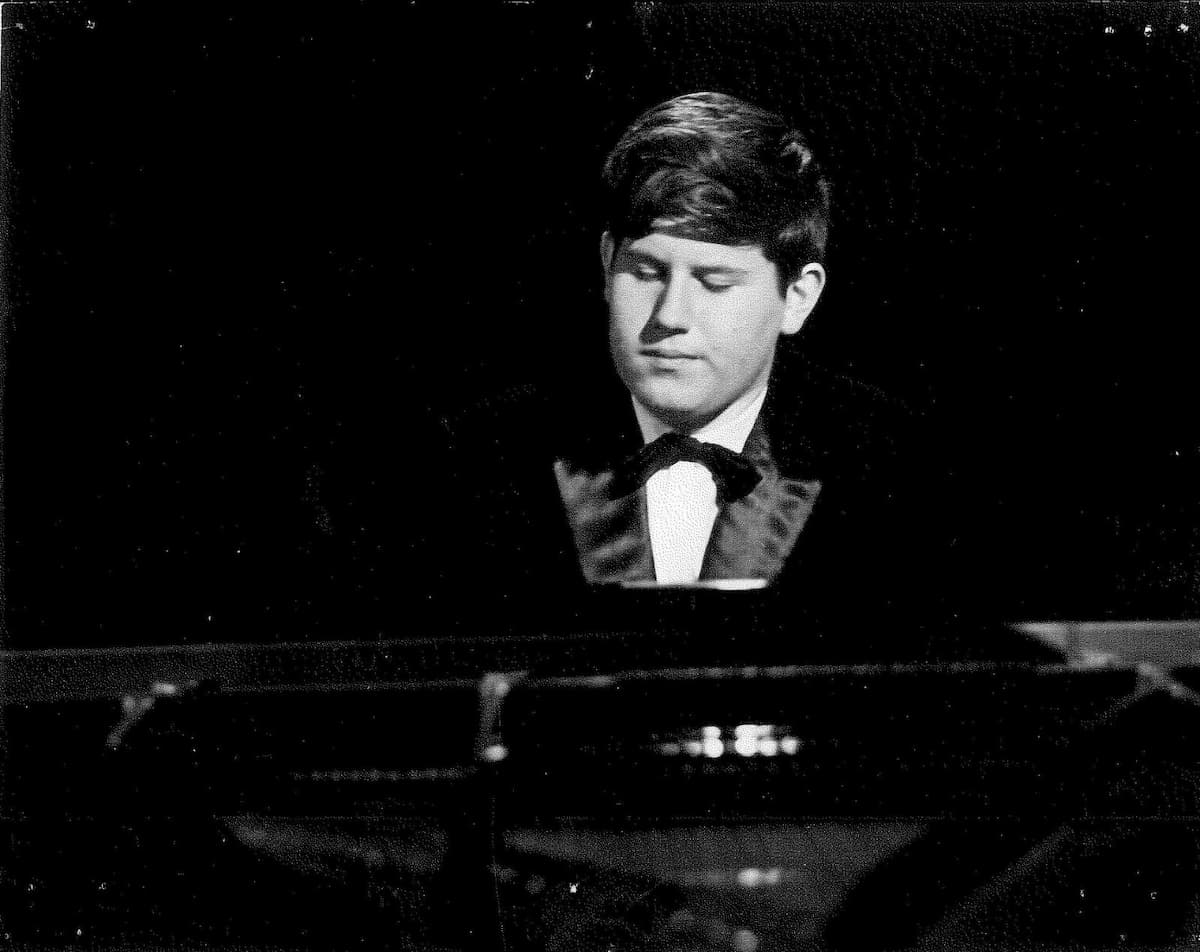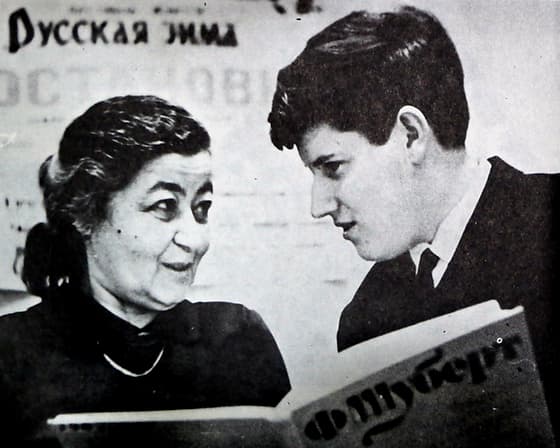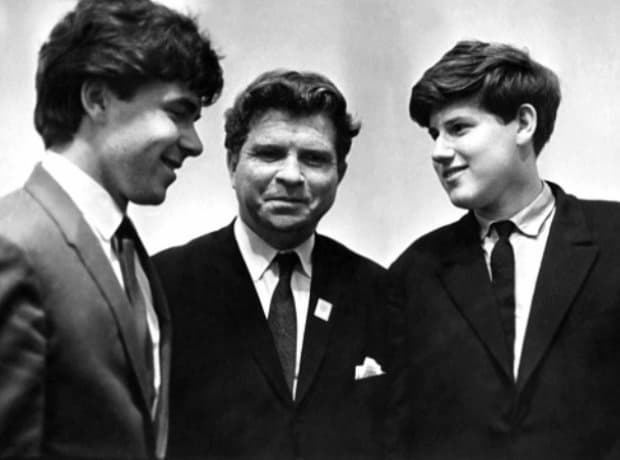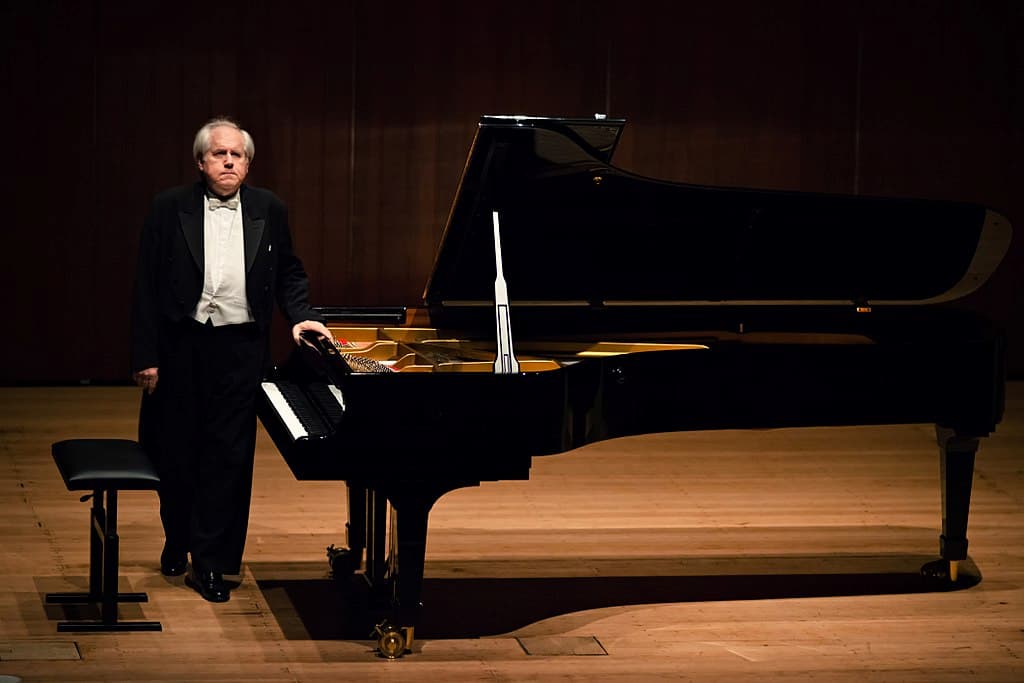For a good many commentators, Grigory Sokolov is the “greatest living pianist.” And while such statements can be endlessly debated, Sokolov has certainly reached cult status among pianists and audiences. His colleague Daniil Trifonov exclaims, “Sokolov is a musical figure of intense magnitude. Attending his performances, one may have the sensation of the sound possessing a nearly physical essence; it fills the entire concert hall with rare energy and lives in its own time sphere.”

Grigory Sokolov in 1967
Sokolov severely dislikes the celebrity circus, hardly ever gives interviews, hates photographs, and much prefers the concert hall to the recording studio. As he once explained, “Everything in art comes from above. All one’s energy comes from the cosmos. Nerves are an inextricable part of it all. When you play as if you were drinking a cup of tea, that’s not music. If I don’t feel anxious before a concert, I wonder what’s wrong. It’s precisely what’s missing in the studio: I absolutely must feel it.” As a fellow pianist writes, “It is Sokolov’s daring originality, creative freedom, most outrageous risk-taking in live performance that produces the most astonishing sound.”
Grigory Sokolov Plays Chopin’s Etude Op. 25, No. 12
Sokolov was born on 18 April 1950 in Leningrad, now called Saint Petersburg, to Jewish father Lipman Girshevich Sokolov and Russian mother Galina Nikolayevna Zelenetskaya. He remembers, “In the beginning, everything was quite ordinary. My parents bought a piano, and from that moment I could not think of anything else but becoming a pianist.” Conductor Anatoly Grindenko, who went to primary school with Sokolov says, “he was modest and quiet; he didn’t rush about, any more than he does now. He wasn’t a wunderkind, just a normal boy, with abnormal gifts, who knew what his goal was right from the start.”

Leah Zelikhman and Grigory Sokolov
Sokolov took his first formal piano lessons at age five and entered the Leningrad Conservatory’s special school for children at the age of seven to study with Leah Zelikhman. He describes Zelikhman “as a marvelous pedagogue, who managed to arrange our studies in such a way that everything went smoothly and very naturally for me.” For Sokolov, Zelikhman “did not have any particular method in the narrow sense of the word. It would be more correct to speak of something much more elaborate than a schematic method.”
Grigory Sokolov Plays Brahms’ Intermezzo Op. 117, No. 2
According to Sokolov, “Zelikhman simply knew how to find a correct approach to a student in every individual case. She had no dogmas. She wouldn’t force her students to play scales, but neither would she forbid them to do so. She always believed that it was possible to solve the same technical problems by playing actual works.” Sokolov continued his studies at the Leningrad Conservatory with Moisey Galfin, and he gave his first major recital in Moscow at the age of 12. The eclectic program included works by Bach, Beethoven, Schumann, Chopin, Mendelssohn, Rachmaninoff, Scriabin, Liszt, Debussy and Shostakovich.

Misha Dichter, Emil Gilels and Grigory Sokolov
Sokolov acquainted himself with great pianists through records, and over the years he acquired his own favorites. “Of those whom I heard on the stage I’d like to name first of all Emil Gilels. Judging by the record, it was Rachmaninoff, Sofronitsky, Gould, Solomon, Lipatti. As to esthetics, I feel most close to Anton Rubinstein.” At the age of 14, Sokolov took part in the audition for the Bach Competition and a year later played at the All-Russian and All-Union Contests. Sokolov won both competitions and at the age of 15 he exploded onto the scene by winning the International Tchaikovsky Piano Competition in Moscow.
Grigory Sokolov Plays Bach’s Partita No. 1 in B-flat Major, BWV 825
His triumph came as a complete surprise, and “the audience was furious at the result, whistling and jeering at him, their preference for the showier American pianist Misha Dichter.” Sokolov later recalled, “Naturally, 1966 was a red-letter year for me. Aged fifteen I was given a special dispensation to enter, but I had to fight my way through so many preliminary rounds. In 1958 there was Van Cliburn, in 1962 John Ogdon and Vladimir Ashkenazy, and then in 1966 it was my turn. These were hard acts to follow and I still feel uneasy regarding the competition scene. It is not a good way to achieve recognition. There is too great an element of Russian roulette, too many jury members chosen for political rather than musical experience.”
Grigory Sokolov Plays Tchaikovsky’s Piano Concerto No. 1 (Live in Lisbon 16 years old)
Despite winning, Sokolov has an ambivalent attitude toward piano competitions. As he explained, “Today when there are so many young performers, a competition presents the only opportunity for them to gain the right to step onto the professional stage. But performances in competitions do not directly pertain to the profession of a pianist. All kinds of fuss do nothing but harm to art. It turns into a sporting event. To win, to compete, to emulate is not quite an art.”

A reporter once asked him how many hours he practiced for the Tchaikovsky competition. Sokolov replied, “I don’t remember. But I can tell you exactly how many hours I practice now, 24. Because for me, the most important work doesn’t happen at the piano at all; it’s when something comes together in my head.”
For more of the best in classical music, sign up to our E-Newsletter
Grigory Sokolov Plays Schumann and Rachmaninoff
